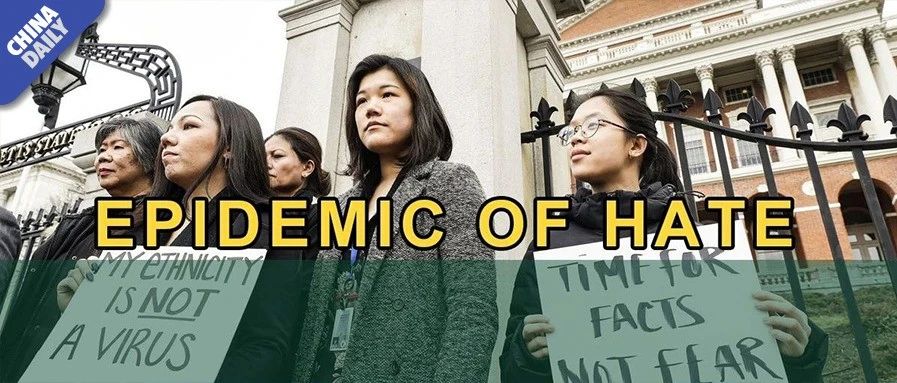

Kim Thai是一位越南裔美籍作家、制片人。疫情期间,她写下这篇文章,记录亚裔在美国社会中的艰难处境。
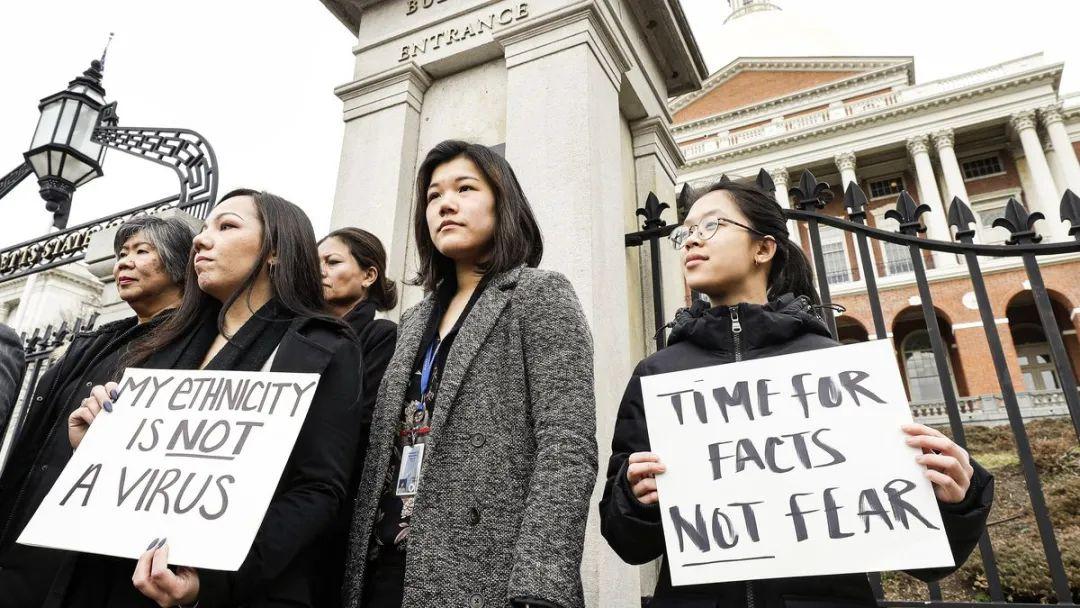
Since the COVID-19 outbreak began in the United States, Asian Americans have been under attack by the Trump administration, and more than 2,500 hate incidents against Asian Americans and Pacific Islanders have been reported to advocacy groups.
自从新冠疫情在美国境内暴发,亚裔美国人就成为了特朗普政府的攻击对象。倡议团体收到有关仇视亚裔美国人和太平洋岛民的事件已经超过了2500起。
Yet President Donald Trump continues to call COVID-19 the "China virus".
事到如今,特朗普总统还在管新冠病毒叫“中国病毒”。
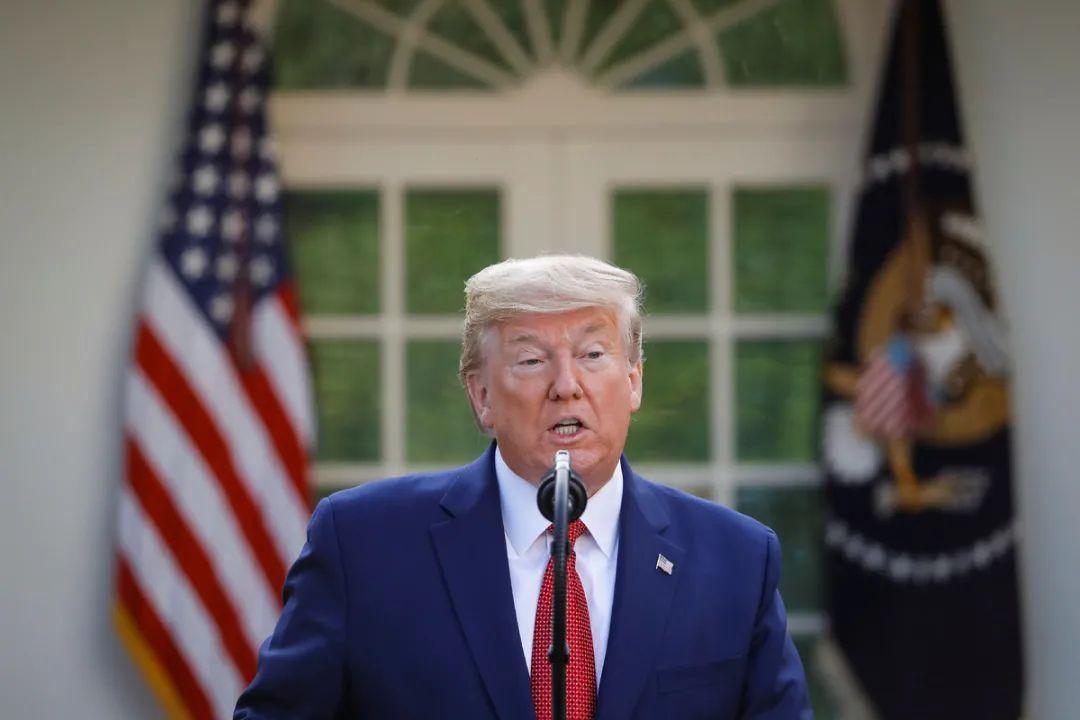
"I beat this crazy, horrible China virus," Trump said in a telephone interview with Fox News this month.
前不久感染新冠的他在本月接受福克斯新闻电话采访时说:“我战胜了疯狂又可怕的中国病毒。”
The president's dangerous language is not only a thinly veiled attempt to cover up his administration's catastrophic response to the pandemic. It is also an intentional strategy to give a face to a disease that has killed more than 220,000 Americans, and to make that face the enemy.
特朗普发表这样危险的言论不仅仅是为了掩盖美国政府抗疫不力带来的灾难性后果,这背后还隐藏着一个策略,那就是为这场已造成22万美国人死亡的“无形杀手”勾勒出一个可以怪罪的“有形敌人”。
I am that face. And I am tired of being Trump's punching bag for the coronavirus.
作为亚裔美国人,我厌倦了做特朗普在这场疫情中的出气筒。
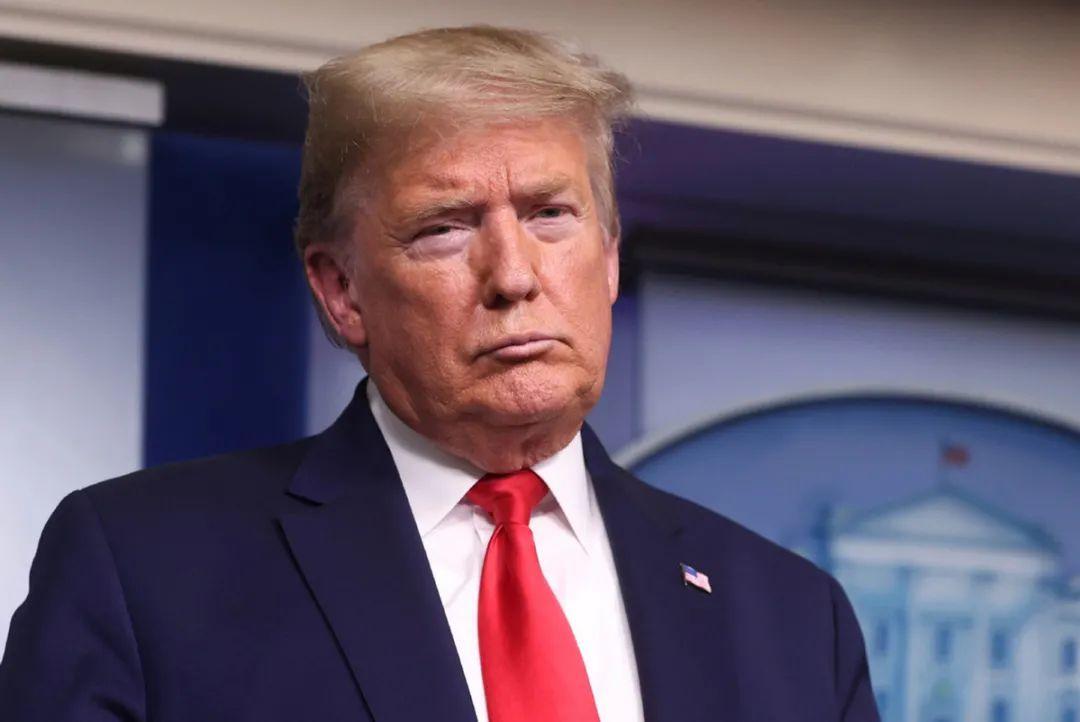
But I certainly do not feel safe in America now. For me, it started in May. When I saw Trump bully Weijia Jiang, an Asian American CBS reporter, at a White House press conference, telling her to "ask China" about his mishandling of the pandemic, I went into a tailspin. My body immediately tensed up, my breath shortening. The president's remark was a reminder of feeling forever trapped in my Asian body and like a stranger in the country I call home.
从今年五月份开始,我的生活就毫无安全感可言了。当时在白宫的一场疫情发布会中,CBS的华裔女记者Weijia Jiang质问特朗普为什么早知疫情却不警告,特朗普恶语相向道:“你去问中国吧。”他的话让我全身紧绷,无法呼吸。总统的话就像刀子插进我的身体,无时无刻不在提醒我:我是个亚洲人,在美国这片我称之为“家”的土地上,我始终是个陌生人。
Often, I cowered away in silence, not responding, slinking away in submission, passively doing everything I could to de-escalate a potentially dangerous situation.
通常我都是默默畏缩、不做反应、顺从被动,尽可能地远离潜在危险。
Silence, essentially, became a tool for survival.
根本上讲,沉默不语就是我的生存之道。
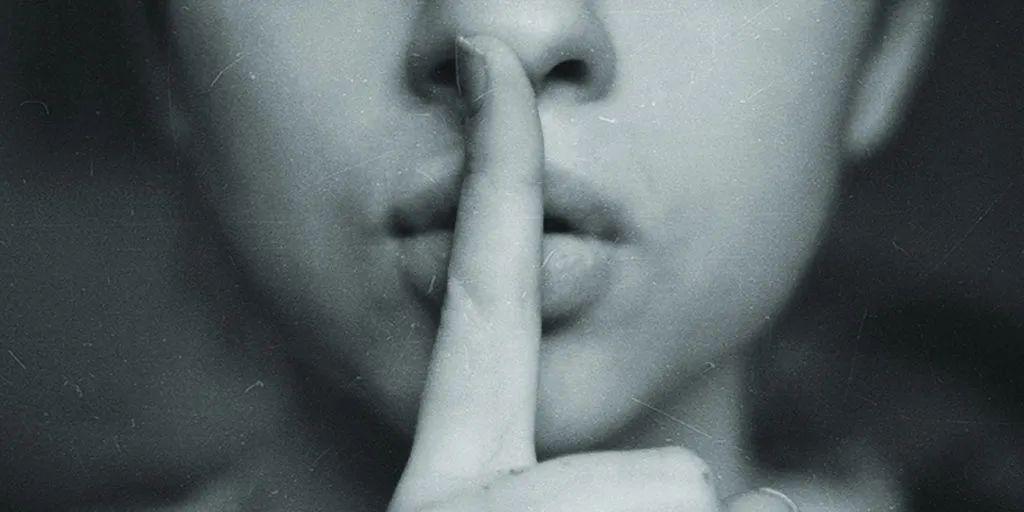
So, amid the president's racist rhetoric, I have sat in silence with the question of how to stand up to a dangerous administration that uses me, an Asian American, as a scapegoat for its failures.
当我们的总统满嘴种族主义言论,政府又把亚裔人当作抗疫失败的替罪羊时,我沉默不语。
I sat in silence while racial slurs against Asian Americans became prolific.
当种族诽谤的声音野火般蔓延时,我沉默不语。
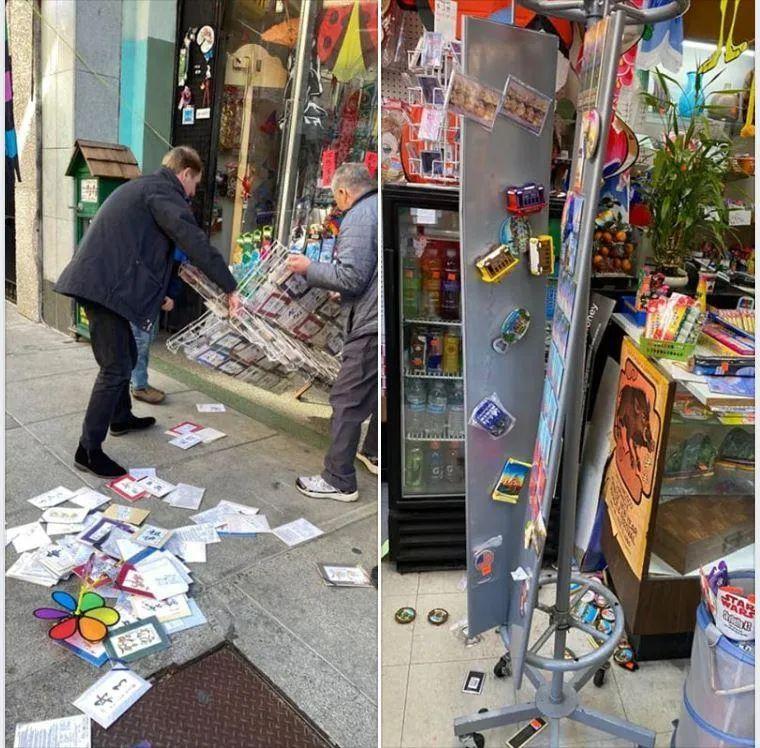
▲ 路人帮助亚裔店主收拾被袭击后的摊位
I sat in silence while Chinese restaurant owners and Asian doctors and nurses suffered from workplace discrimination because people believed they had a higher propensity to carry the virus than other ethnicities.
当中餐厅老板和亚裔医务人员被人指骂,说他们携带病毒的几率比其他种族更高时,我沉默不语。
I sat in silence while my mother's anxiety became palpable from across the country, like so many others'.
当我的母亲和美国其他亚裔母亲一样,焦虑与日俱增时,我沉默不语。
I sat in silence while we got attacked and beaten because of our almond-shaped eyes.
当我们因生着一双杏仁形状的眼睛而遭到殴打时,我还是沉默不语。
But the thing about silence is that it can be used against you. Events, experiences and people cease to exist. There is no changing of the narrative, no twisting of the truth, no alternative facts, because there is not even a story to begin with.
但我最终发现,沉默换来的结果还是伤害自己,因为你的遭遇,你的经历,以及害你遭受这些痛苦的人,所有这一切都会因你的沉默而不复存在。如果把事情说出来,叙述方式可能会改变,事情的真相可能会被篡改,但如果沉默着只字未提,整件事就无迹可寻。
Click here for audio and translation of the story